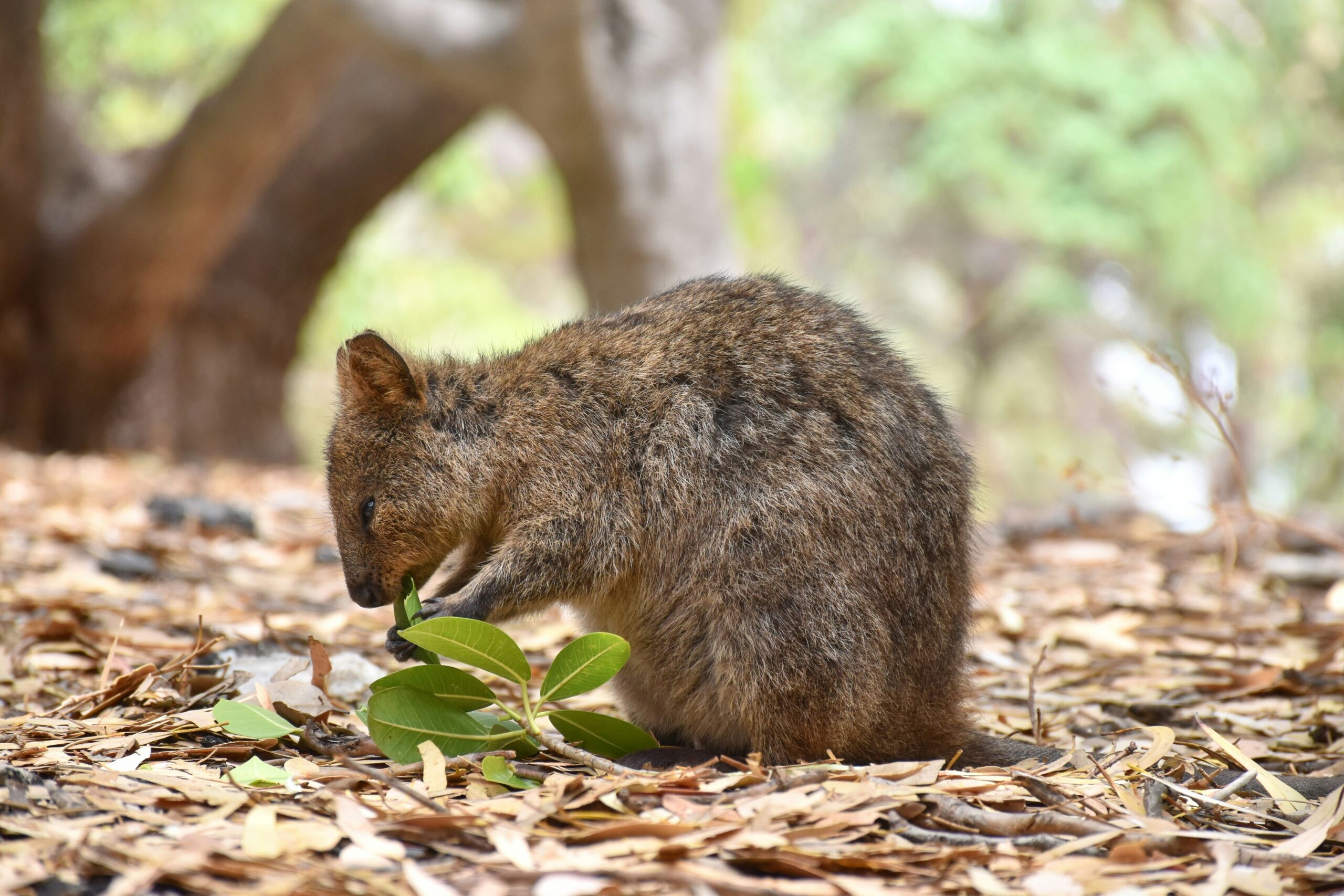If there’s one creature that perfectly encapsulates pure joy, it’s the quokka. These small marsupials, native to a few regions in Western Australia, have taken the internet by storm thanks to their perpetually smiling faces. Let’s dive into the world of the quokka, exploring their habitat, behavior, diet, and why they’ve become such a viral sensation.
Quokkas are primarily found on Rottnest Island, a protected nature reserve off the coast of Perth, Australia. This island paradise provides an ideal sanctuary for quokkas, free from many of the predators that threaten their mainland counterparts. Quokkas also inhabit Bald Island and smaller regions on the mainland, but Rottnest Island remains their most famous home.
Despite their cute appearance, quokkas are remarkably resilient. They belong to the macropod family, which includes kangaroos and wallabies. Quokkas are small, about the size of a domestic cat, and they have a stocky build with strong hind legs, which they use for hopping around their environment. Their dense fur ranges from light brown to grey, providing camouflage in their natural habitat.
One of the most fascinating aspects of quokka behavior is their sociability. Quokkas are nocturnal and live in family groups, which gather in small colonies. During the day, they rest in the shade of dense vegetation, conserving energy and avoiding the harsh Australian sun. As night falls, they become more active, foraging for food and socializing with their group.
Quokkas have a varied diet, primarily consisting of native grasses, leaves, and bark. They are also known to eat fruits and berries when available. One interesting adaptation quokkas have is their ability to survive without direct water sources for extended periods. They obtain most of their hydration from the moisture content in their food, allowing them to thrive in environments where water is scarce.
The reproductive habits of quokkas are quite unique. Female quokkas can give birth twice a year, usually producing a single joey. The joey spends its first few months in the mother’s pouch, similar to other marsupials, before emerging and beginning to explore the world. This rapid reproduction rate is crucial for maintaining their population, especially given the various threats they face.
While quokkas have become an internet sensation, they face several conservation challenges. Predation by introduced species such as foxes and feral cats, habitat loss due to human development, and climate change all pose significant threats to their survival. Fortunately, efforts are being made to protect these charming creatures. Conservation programs on Rottnest Island and other protected areas have helped stabilize their population, and awareness campaigns continue to highlight the importance of preserving their habitat.
What truly sets quokkas apart, however, is their endearing facial expressions. Quokkas have become the unofficial ambassadors of happiness thanks to their seemingly smiling faces. Tourists flock to Rottnest Island for the chance to snap a “quokka selfie,” and these photos often go viral, spreading joy and raising awareness about the species.
The quokka’s friendly demeanor towards humans has undoubtedly contributed to their popularity. They show little fear of people and often approach tourists, making them ideal photo subjects. However, it’s essential to remember that quokkas are wild animals, and maintaining a respectful distance is crucial to their well-being. Feeding quokkas human food is not only harmful to their health but is also illegal on Rottnest Island.
The viral fame of the quokka has had both positive and negative impacts. On the positive side, increased attention has led to greater awareness and support for conservation efforts. Many people who had never heard of quokkas are now invested in their survival and contribute to protecting their habitat. On the downside, the surge in tourism can lead to habitat disruption if not managed carefully. It’s a delicate balance between sharing the quokka’s charm with the world and ensuring their environment remains undisturbed.
The quokka is more than just a cute face. They are a resilient species with fascinating behaviors and adaptations that allow them to thrive in their unique habitat. Their viral fame has helped bring attention to the conservation issues they face, and ongoing efforts are crucial to ensure their survival. Next time you see a quokka selfie, remember the remarkable story behind that adorable smile.







What do you think?
Show comments / Leave a comment